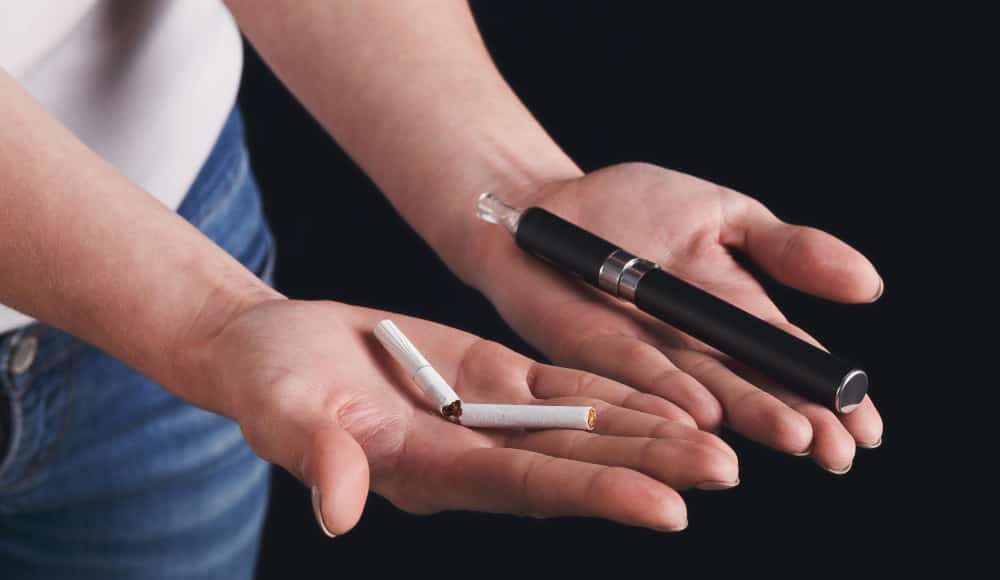The participants consisted of adults smoking at least five tobacco cigarettes daily who expressed the intention to quit. These were randomly assigned to either an intervention group or a control group. The intervention group received free vapes and e-liquids, standard-of-care smoking-cessation counseling, and optional (non-free) nicotine-replacement therapy (NRT).
In contrast, the control group received standard counseling and a voucher that could be used for various purposes, including NRT. The primary outcome was biochemically validated continuous abstinence from smoking at the 6-month mark, with secondary outcomes including participant-reported abstinence from tobacco and any nicotine sources, respiratory symptoms, and serious adverse events.
Out of 1246 participants, 622 were assigned to the intervention group, and 624 to the control group. The results indicated a significant difference in biochemically validated continuous abstinence, with 28.9% in the intervention group compared to 16.3% in the control group (relative risk, 1.77; 95% confidence interval, 1.43 to 2.20). Moreover, the percentage of participants abstaining from smoking in the 7 days leading to the 6-month visit was 59.6% in the intervention group, exceeding the 38.5% in the control group. However, naturally the percentage of individuals abstaining from any nicotine use was higher in the control group at 33.7%, versus 20.1% in the intervention group.
The “vapes’ group” reported less serious adverse events
Interestingly, more serious adverse events occurred in the control group at 5.0% in comparison to 4.0% of participants in the intervention group. However less serious adverse events were reported in 43.7% of the participants in the intervention groups versus 36.7% in the control group.
In conclusion, the study found that incorporating vaping into standard smoking-cessation counseling resulted in a higher rate of abstinence from tobacco use compared to counseling alone. In line with previous findings, this suggests that vapes should be considered and incorporated in smoking cessation efforts.
A US proposal for a federal vape tax remains pending
Sadly, policymakers in various countries are still choosing to ignore such data. In the US, HR 5715 introduced last October, aims to raise taxes on all tobacco (and/or nicotine) products to match the tax applied to cigarettes. In fact, the tax proposed on cigarettes is double the current one, increasing from $50.33 to $100.66 per 1000 cigarettes.
However, the bill is facing criticism for inconsistent taxation on nicotine content, as cigarettes would be taxed at a rate five times lower than vaping products when comparing milligrams of nicotine. If enacted, HR 5715/S 2929 would result in consumers paying 5.5 cents per milligram of nicotine for vapes and other alternatives, while cigarettes would only be taxed at 1.1 cent per milligram (based on the average nicotine content of 9mg/cigarette across multiple brands). To this effect, the significant tax hike raises concerns, for reduced-risk products such as vapes, nicotine pouches, snus, and moist snuff (dip).
Critics argue that the proposed tax increase fails to align with the principle of “risk-proportionate regulation,” as it imposes a higher tax rate on products that are considered less harmful than traditional cigarettes. Various reputable sources, including the FDA, serious tobacco scientists, the UK’s Royal College of Physicians, and several international government health agencies, acknowledge the existence of a “continuum of risk” for tobacco products. Additionally, these groups emphasize that nicotine itself is not the primary source of harm.
What can you do?
The Consumer Advocates for Smoke-free Alternatives Association (CASAA) highlighted that if passed, this taxl could have adverse effects on consumers seeking harm reduction alternatives and does not align with evidence-based approaches recognized by health authorities worldwide. The group is urging consumers and tobacco harm reduction advocates to take action, and has facilitated this by drafting a letter that interested individuals can sign and forward to local lawmakers.
On a positive note, health economist and health policy researcher Dr. Michael Pesko does not sound concerned. He told Vaping Post that to his knowledge “..there haven’t been any serious efforts to pass new tobacco taxes in the current Congress, nor do I think they would be likely to be successful currently.”








